If you’ve ever asked yourself, ‘How can I best take care of my dog?’ you’re not alone. Effective dog care strikes a balance between love, structure, and understanding your dog’s needs. This tailored guide cuts through the confusion to layout simple, actionable tips for taking care of a dog.
We are ensuring you’re equipped for every step of your journey together—from daily routines to preventive healthcare. Get ready for a deep dive into practical dog care that aligns with your furry friend’s needs.
Creating a Cozy Haven: Setting Up Your Dog’s Living Space
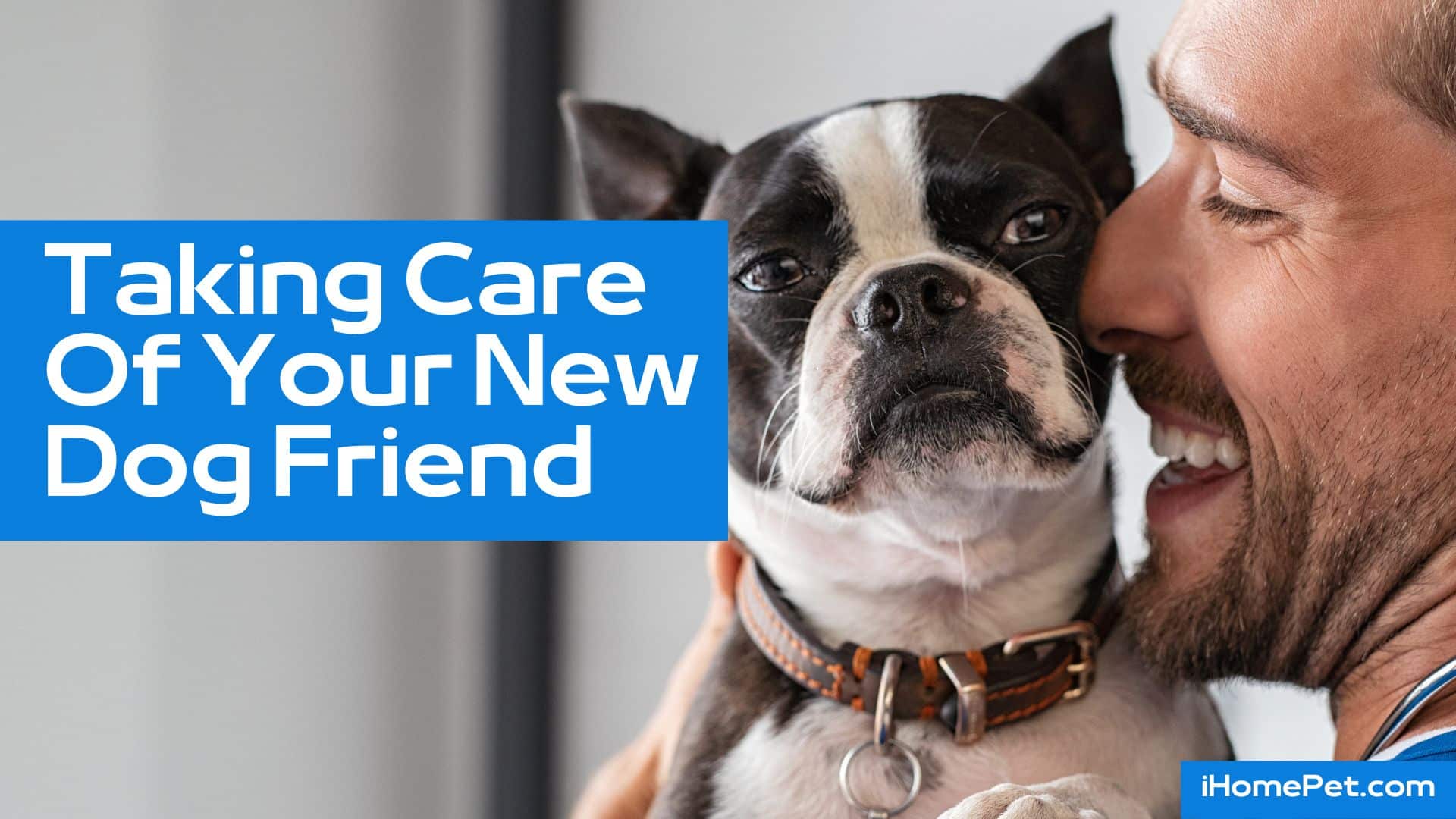
As owners of pets, it’s our responsibility to guarantee their welfare by building them a space where they can relax and feel safe. Here are some tips for making the perfect haven for your pup.
Provide comfort in order to give male dogs an area that is all theirs. Somewhere they’re able to rest peacefully and be shielded from potential stressors such as loud noises or visitors coming into the house unannounced.
Make sure every pet parent provides adequate bedding as well as furniture pieces ideal for relaxing on, this allows Fido his own oasis he knows he can retreat back too if needed!
Selecting the Perfect Dog Bed
When selecting a dog bed, there are more factors to consider than meets the eye: size, material used and your pup’s sleeping preferences. Investing time into finding one that is just right can be invaluable for giving them their own little area of comfort. Don’t forget the appropriate accompanying dog linens!
Food and Water Dish Placement
For your dog’s meals to be stress-free, you should locate their food and water dishes in a location away from any hustle. Remember that the height of these bowls must allow them to eat or drink with no discomfort on their neck or back. This way, having access to clean foods without feeling overwhelmed will help create healthy eating habits for your pet.
Importance Hiding Places of Your Dog
Dogs definitely benefit from having their own special hiding spots. A refuge that they can retreat to whenever feeling anxious or uneasy is an essential part of your pup’s emotional security and well-being, so making sure there are a few places available around the house should be on top priority for pet owners. These little getaways will give them peace in mind and create safe havens during times of distress.
Nourishing Your Canine Companion: A Balanced Diet and Hydration
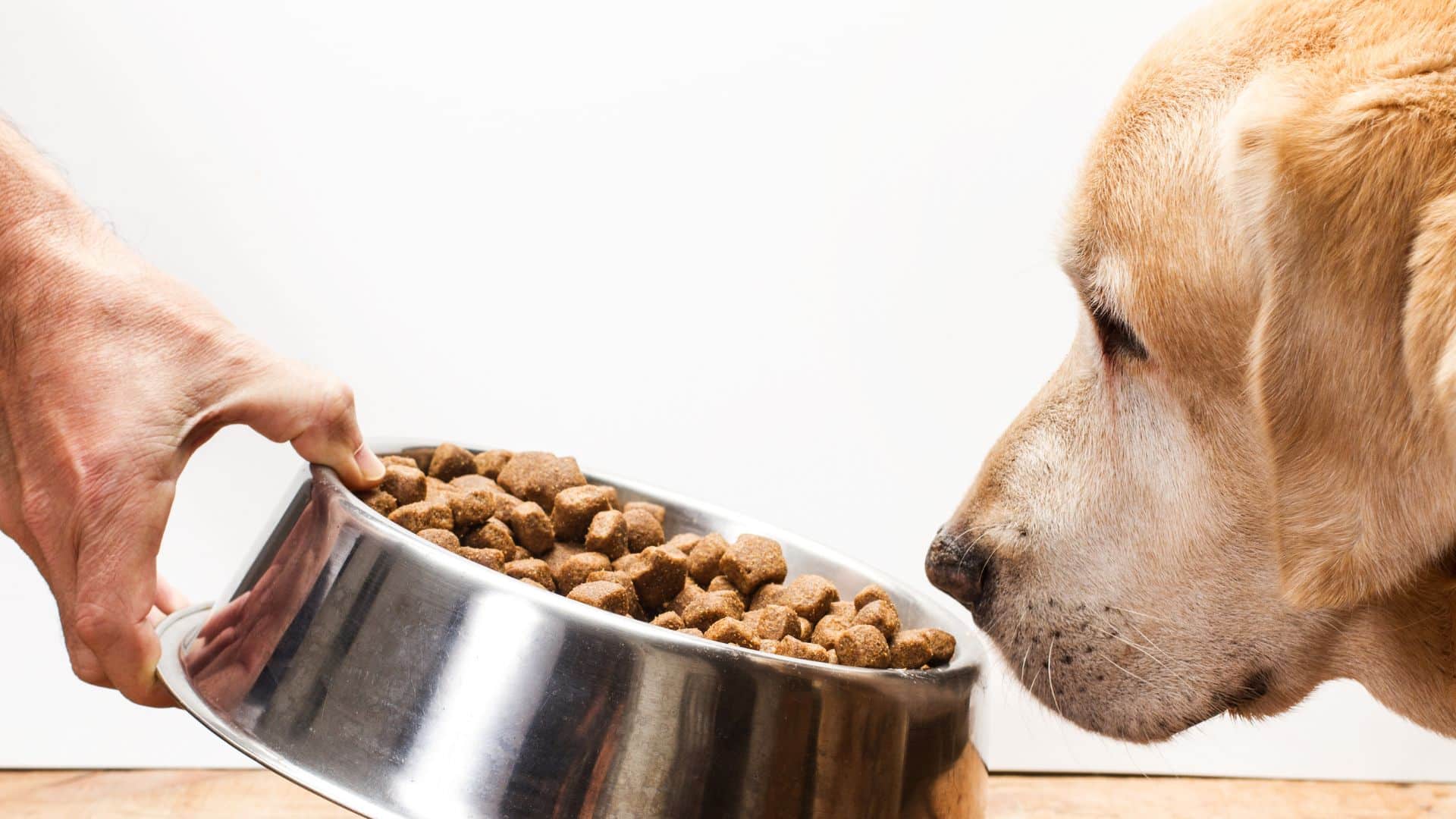
In order to maintain the well-being of your canine companion, it is important that you provide them with a balanced diet and ensure they have access to fresh water. Here are some dog care tips for keeping your pup fit.
Know their nutritional necessities and serve up meals suitable for them. Human food should be avoided in such cases as it might prove harmful. Constant availability of H20 must also be made certain. By following these pieces of advice concerning dogs, you can help make sure yours stay healthy and happy.
Understanding Dog Nutrition
Dog nutrition is not a simple matter. It’s essential to make sure that the diet for your pup includes these essentials: water, fat, protein, carbs and vitamins & minerals suited specifically to their breed age as well as overall health conditions. The right combination of all these components should be determined considering those factors in order to provide optimal care for your pet canine friend.
The Perils of People Food
It may seem like a good idea to feed your puppy some of your food. It’s important to keep in mind that certain foods, such as chocolate, avocados and onions, are harmful for dogs and can lead to health problems. So when looking out for the safety of our furry companions’ wellbeing, we must remember not all human food is safe for them.
Fresh Water Fundamentals
Providing access to clean, fresh water for your canine at all times is critical since dehydration can quickly cause serious health concerns in dogs. This essential liquid sustains the life of every living creature, and this includes our beloved furry friends!
The Active Pet: Exercise and Play for a Healthy Life
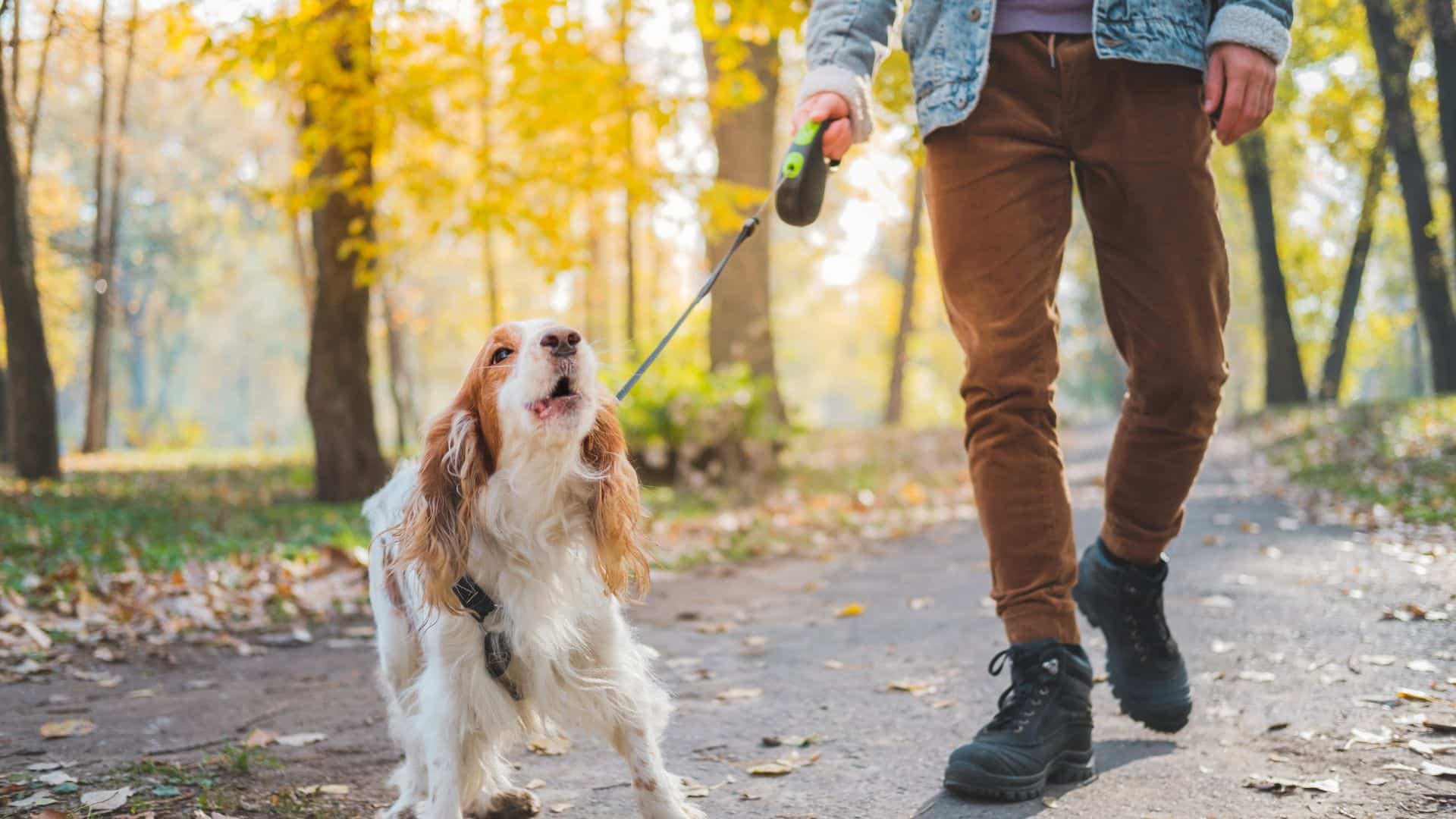
Exercise and play are crucial to keeping your pet’s health in check. A balanced diet is just as important. Taking the time for regular physical activity helps maintain their wellbeing, while also avoiding behavioral issues.
To make sure you meet these needs, it’s good to adjust exercise plans according to individual requirements, participate in interactive activities with them and recognize when they have had enough.
Tailoring Exercise to Your Dog
No two dogs are alike, and their physical activity requirements can vary depending on breed, age and any medical issues that need to be taken into account. To ensure your puppy is healthy and contented, it’s necessary to tailor an exercise plan specific for them.
Fun with Fido: Interactive Games
Interactive games are an excellent way to maintain your dog’s physical fitness and mental well-being, while simultaneously increasing the bond between you and your pet. The whole family can get involved in these enjoyable activities that keep everyone’s canine companion healthy and entertained!
Recognizing Overexertion Signs
When exercising your dog, it is important to know the indicators of overexertion in order to protect their health. Just like humans, dogs can easily push themselves too hard while being active and if not monitored properly could lead to serious medical issues. Knowing how much exercise they need should be taken into consideration for the best results regarding their wellbeing.
Grooming for Good Health: Keeping Your Dog Clean and Comfortable
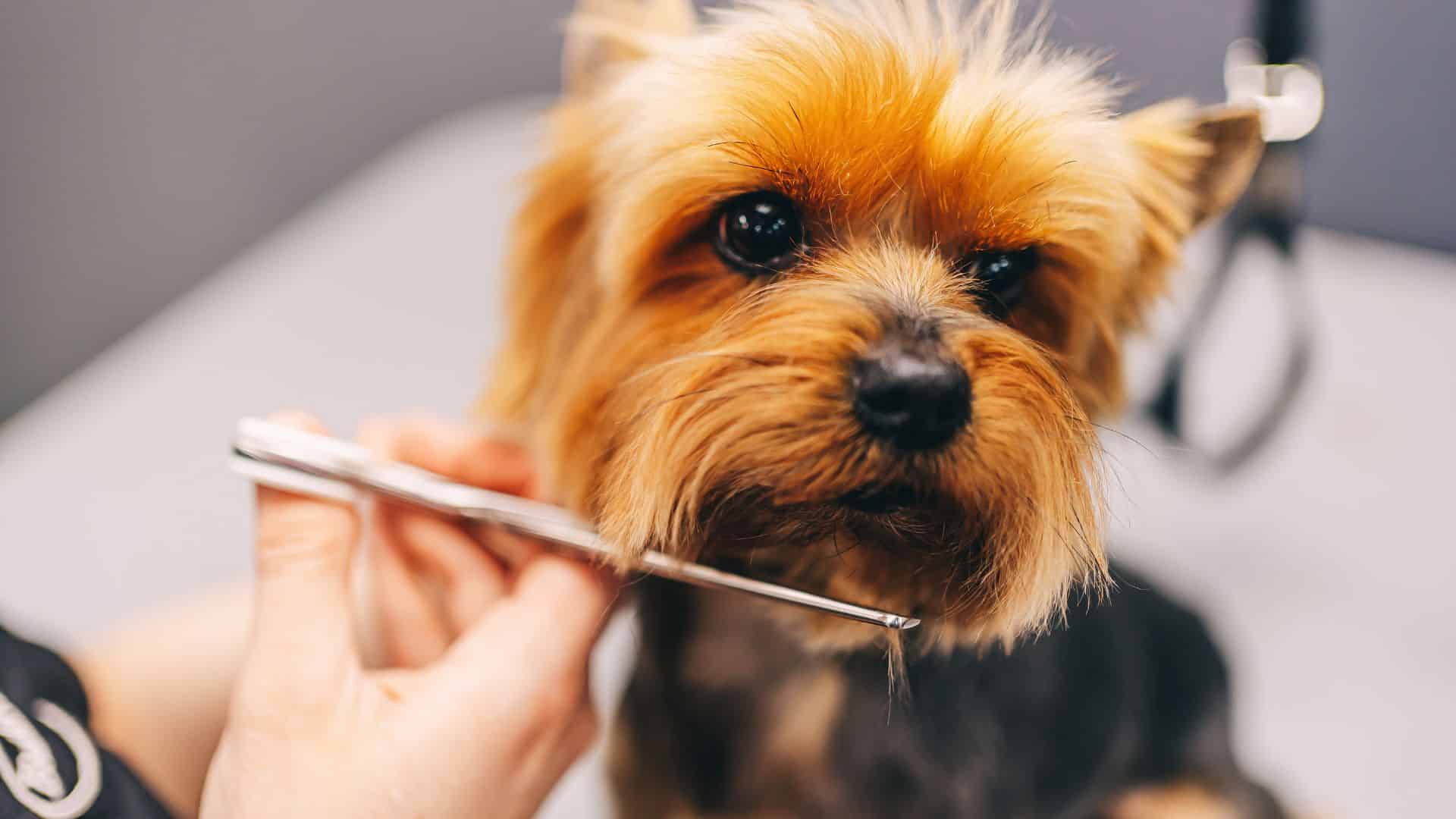
Grooming your dog is beneficial for their appearance. It can help maintain healthy skin and fur, fend off infections, and allow you to easily spot any signs of concern or potential illnesses in time.
Brushing your dog’s teeth is also an important part of grooming that can help prevent dental issues and keep their breath fresh. Additionally, there are some creams that can help your dog’s paws stay moisturized and prevent cracking or irritation.
Routine Brushing and Coat Care
Regularly brushing your pup’s fur is essential for managing shedding and averting tangles. It also serves as an excellent way to keep tabs on any fleas, ticks or unusual skin conditions. It may even be a beneficial bonding experience since many dogs relish being brushed, not forgetting taking care of their dental hygiene.
Nail Trimming Necessities
Regular nail trimming is essential for your canine’s well-being and comfort. If not taken care of, their nails can become too long resulting in pain. If you are unsure how to clip them yourself, vets or groomers can do it safely instead.
Bath Time Basics
Bathing your canine companion is essential for maintaining a good coat. Depending on the breed, coat type, and lifestyle needs of the dog in question, it may be necessary to bathe them regularly, not necessarily daily like we humans. A clean skin and fur can help keep any unwanted parasites away too.
When you regularly groom your pet, you can prevent seasonal allergies and increase the overall comfort and well-being of your furry friend. Additionally, regular bathing can also help to control any odors that may develop over time, keeping your home smelling fresh.
Building Bonds Through Training: Positive Reinforcement Techniques
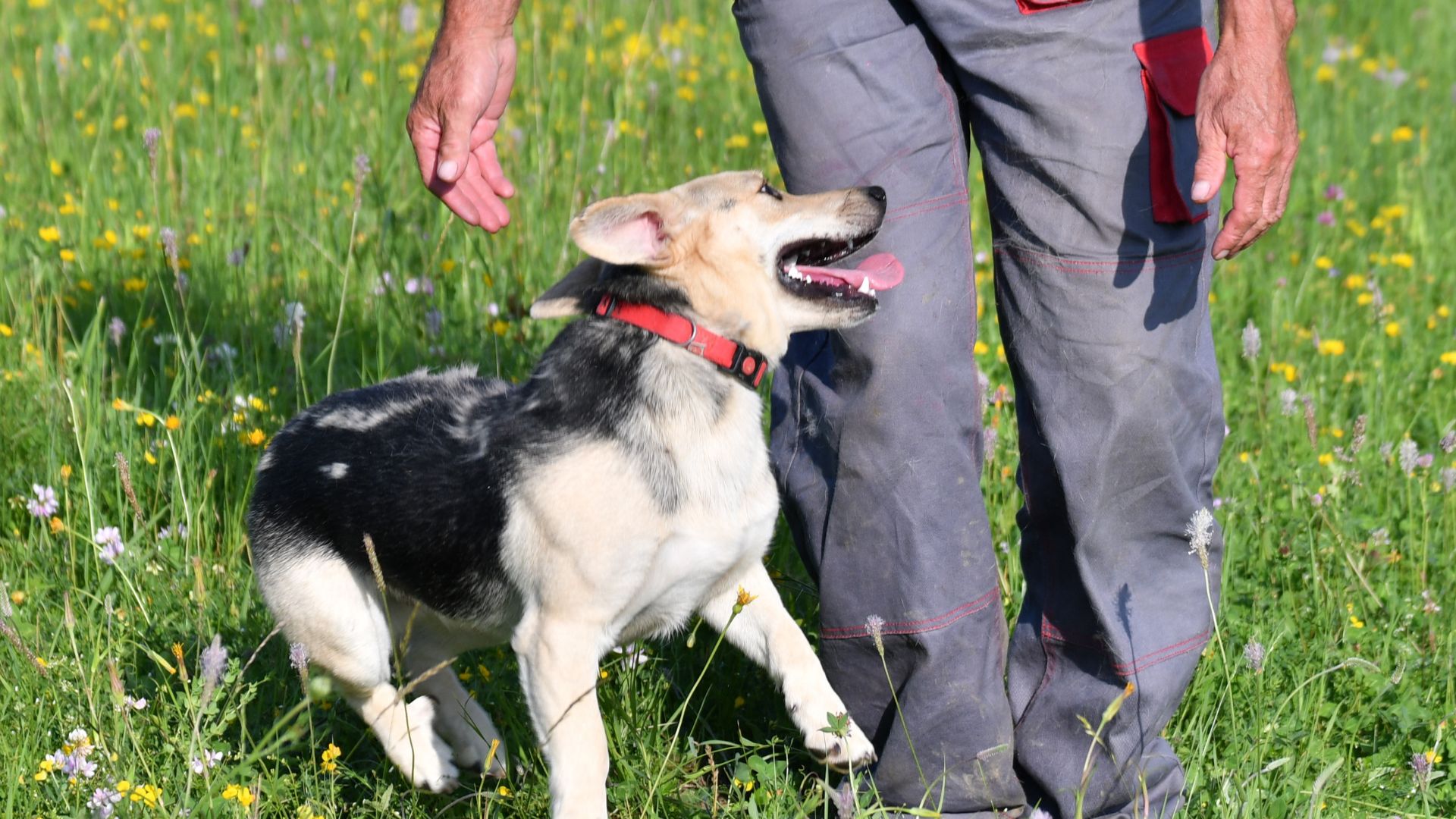
Dog training is a great way to build an even stronger bond with your pup while teaching them how to obey commands. With the right techniques, you can make this process both fun and rewarding for everyone involved! Positive reinforcement will help give your dog the confidence they need to respond quickly when given instructions or cues during their time of learning.
Establishing Basic Commands
Training your canine companion to obey simple commands like sit, come and stay can not only aid in keeping them secure but also streamline life for both of you. Utilizing rewards such as giving treats or verbal encouragement when they follow a command should help make the process more pleasant while becoming an effective learning experience.
House Training Strategies
Training a new canine companion is an essential task and requires persistence, tolerance, and rewards for good behavior. Ensuring that your pup learns where to go potty indoors or outdoors can be accomplished with patience and consistency while reinforcing positive behaviors through encouragement.
Positive reinforcement training is known to be effective in teaching dogs where to go potty. This involves rewarding your pup with treats or praise every time they eliminate in the designated area. Additionally, setting a regular schedule for bathroom breaks and using verbal cues can help your dog understand where and when to go potty.
Preventative Pet Care: Protecting Your Pet’s Well-Being
Protection of your canine’s wellbeing can be assured through regular inoculations, the avoidance of parasites, and the consideration of acquiring pet insurance. Such preventive measures will help avert potential problems while allowing you peace of mind regarding your four-legged friend’s general wellness.
A clean food bowl and litter box would help your cat.maintain good hygiene and prevent the spread of bacteria or parasites. Additionally, regular grooming sessions can help keep your cat’s coat healthy and free from mats or tangles, while also allowing you to check for any skin issues or abnormalities.
Your pet’s body language can also provide important clues about their overall well-being. Pay attention to any changes in their behavior, such as excessive scratching, lethargy, or loss of appetite, as these could be signs of underlying health problems.
Health Issues You Should Know
As pet parents, we need to have an idea of certain health issues that may arise in our pets. Some common issues with pets include:
- Allergies
- Dental problems
- Rocky mountain spotted fever
- Diabetes and joint problems
- Testicular cancer
- Cardiovascular disease
- Lyme disease
- Heat stroke
- Metabolic abnormalities
Regular exercise can help prevent some of these issues, and it can also increase mental stimulation and improve overall mood and well-being. Walks in your local parks or in any recreation department are a great way to incorporate exercise into your routine. Dental care is important because it can prevent tooth decay and gum disease.
Talk to a veterinarian if your dog shows early signs of any dental problems, such as bad breath, excessive drooling, or difficulty chewing. They can provide guidance on proper dental hygiene practices and recommend professional cleanings if necessary.
Vaccination Vigilance
Keeping your pup’s vaccinations current is essential for safeguarding them from potential illnesses. To make sure they are fully protected, consult with your veterinarian about any additional vaccines necessary based on lifestyle and other possible risks to their health.
Parasite Prevention Protocols
Protecting your dog’s health involves routinely administering treatments that can ward off parasites like fleas, ticks and heartworms. These pests often bring with them a variety of medical issues so it is important to keep up on regular preventive care for the best wellbeing of your canine companion.
The Benefits of Pet Insurance
Having pet insurance can provide assurance and financial relief in the case of a veterinary emergency. As an extra cost each month, these plans are beneficial when it comes to being able to cover your pet’s medical expenses if they become ill or suffer from any injury.
There are many pet insurance plans that your dog can benefit from, ranging from basic coverage for accidents and illnesses to more comprehensive plans that also cover routine care such as vaccinations and dental cleanings.
By having pet insurance, you can have peace of mind knowing that you won’t have to make difficult decisions about your pet’s health based on financial constraints. You can focus on providing the best care for your pet without worrying about the cost.
Seasonal Safeguards: Adapting Care for Extreme Weather
When the temperature fluctuates to extreme levels, such as hot in summer or cold during winter, proper care must be taken for adult dogs, both male and female. This includes adapting habits of your canine so they can remain safe and comfortable throughout these changes.
Summer Safety Measures
The summer season brings lots of joy to dogs. The heat can also be dangerous. You should make sure you take appropriate steps to safeguard your pet from heat exhaustion and dehydration by giving them access to clean water all day, avoiding walks during hours with the most intense temperature outside, as well as never leaving your dog in a car when it is too hot.
Winter Wellness Tips
To keep your dog safe and comfortable during the winter months, follow a few key steps such as offering them a warm bed, protecting their paws from chemicals like ice melt and adjusting their dietary routine. By taking these precautions, you can help prevent frostbite or hypothermia in senior dogs caused by cold temperatures.
Socialization and Companionship: Integrating Your Dog into the Family
Being a responsible pet owner necessitates incorporating your new dog into the family, which includes providing them with socialization and family interaction as well as dealing effectively with separation anxiety.
Meeting New Friends
Interaction with a diverse group of people and other dogs can strengthen your dog’s sociability and assurance. Introducing them to new acquaintances as well as situations regularly will help in their development into an amicable, trusting pup.
Regular Family Interaction
Frequent quality time spent with your canine companion is key to their stability. Developing a strong connection with them can make them feel truly part of the family unit, an important element for their emotional well-being.
Dealing with Separation Anxiety
It is not uncommon for recently adopted female dogs to suffer from separation anxiety. To ensure your dog’s safety and wellbeing, it’s important that you secure the home environment as well as use tips meant to help canines manage their distress when left alone.
Frequently Asked Questions
How do you take care of a dog for beginners?
Caring for a dog, especially if you are just starting out, means providing its basic necessities: nutritious food and drinkable water at all times, ensuring there is somewhere safe to sleep, engaging in regular physical activity with it. As well as making sure vet appointments are kept up-to-date.
Is it hard to take care of a dog?
Prior to getting a dog, it is essential that you evaluate if you are able and willing to provide for their needs: daily exercise, proper grooming, food supply and companionship. Caring for a canine companion requires effort, but can be incredibly rewarding.
How much time do you need to take care of a dog?
It is necessary to dedicate 1-2 hours each day to take care of your dog, including feeding and exercise. This amount could be higher if your pooch has an active temperament and needs more intensive activity. Regardless, it’s essential that you include time every single day to keep them fed and healthy!
What’s the significance of setting up a cozy living space for dogs?
Creating a comfortable area for your pup is important as it provides them with feelings of safety. This entails selecting the perfect dog’s bedding, having food and water dishes in the correct place, plus supplying hiding places that will bring satisfaction to your pooch.
Last Updated on 16/03/2025 by Karen Snow
Hi! I’m Karen and a certified dog lover. As a freelance writer and blogger, I do my best to squeeze in some time with my dogs, learning more about the way they act and how I can make sure that they continue to stay well-cared for by yours truly.
My dogs have helped me through a lot, and this is my way of giving back to them! Besides animals, I also love to travel and cook, having explored my country’s restaurants and unique places. Follow me as I show you all the amazing tips and bits of information I learn along the way about our furry friends!
